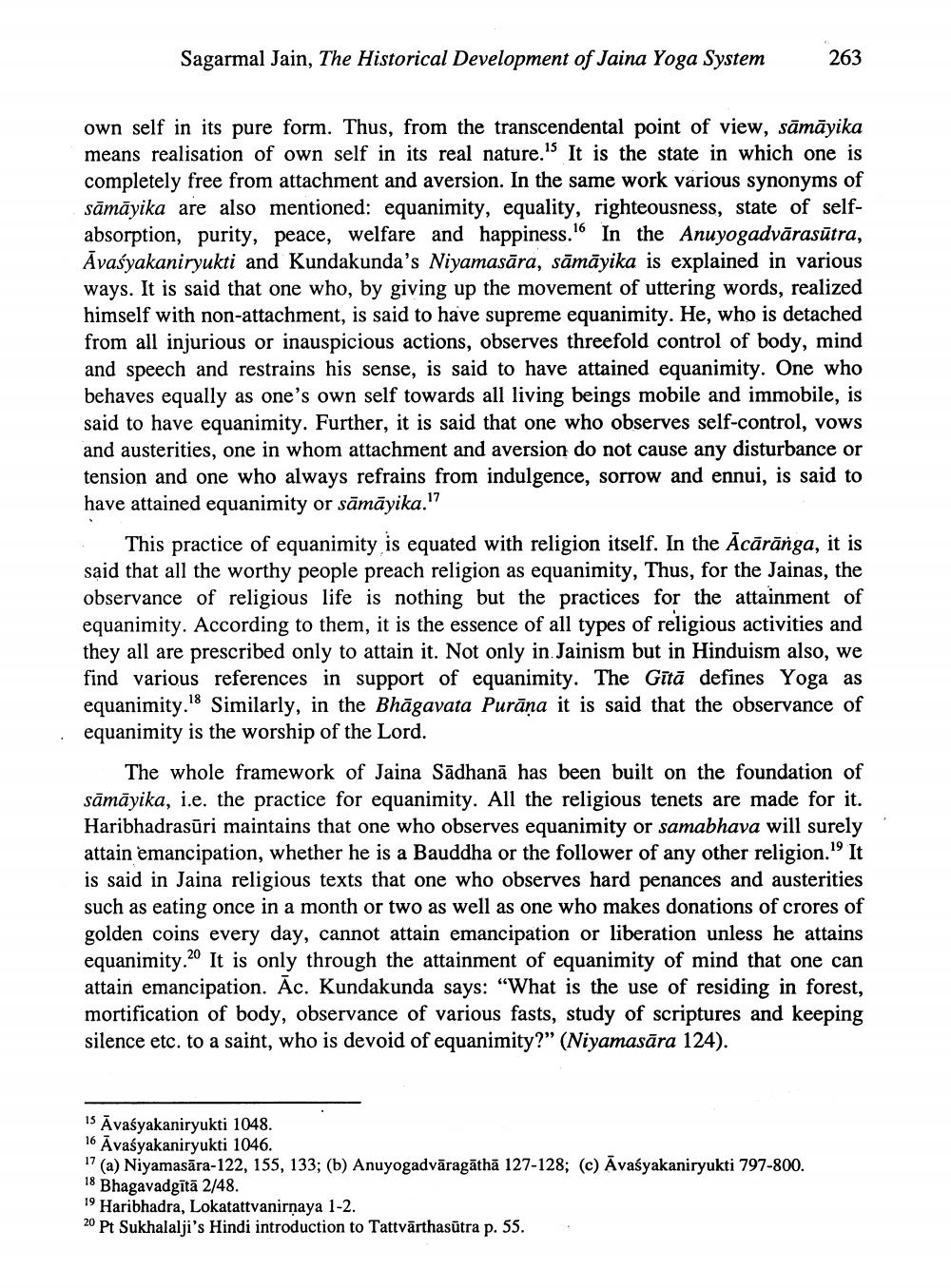________________
Sagarmal Jain, The Historical Development of Jaina Yoga System
own self in its pure form. Thus, from the transcendental point of view, sāmāyika means realisation of own self in its real nature.15 It is the state in which one is completely free from attachment and aversion. In the same work various synonyms of sāmāyika are also mentioned: equanimity, equality, righteousness, state of selfabsorption, purity, peace, welfare and happiness.16 In the Anuyogadvārasūtra, Āvasyakaniryukti and Kundakunda's Niyamasāra, sāmāyika is explained in various ways. It is said that one who, by giving up the movement of uttering words, realized himself with non-attachment, is said to have supreme equanimity. He, who is detached from all injurious or inauspicious actions, observes threefold control of body, mind and speech and restrains his sense, is said to have attained equanimity. One who behaves equally as one's own self towards all living beings mobile and immobile, is said to have equanimity. Further, it is said that one who observes self-control, vows and austerities, one in whom attachment and aversion do not cause any disturbance or tension and one who always refrains from indulgence, sorrow and ennui, is said to have attained equanimity or sāmāyika."
263
This practice of equanimity is equated with religion itself. In the Acaränga, it is said that all the worthy people preach religion as equanimity, Thus, for the Jainas, the observance of religious life is nothing but the practices for the attainment of equanimity. According to them, it is the essence of all types of religious activities and they all are prescribed only to attain it. Not only in Jainism but in Hinduism also, we find various references in support of equanimity. The Gita defines Yoga as equanimity. Similarly, in the Bhagavata Purāṇa it is said that the observance of equanimity is the worship of the Lord.
The whole framework of Jaina Sädhană has been built on the foundation of sāmāyika, i.e. the practice for equanimity. All the religious tenets are made for it. Haribhadrasūri maintains that one who observes equanimity or samabhava will surely attain emancipation, whether he is a Bauddha or the follower of any other religion." It is said in Jaina religious texts that one who observes hard penances and austerities such as eating once in a month or two as well as one who makes donations of crores of golden coins every day, cannot attain emancipation or liberation unless he attains equanimity.20 It is only through the attainment of equanimity of mind that one can attain emancipation. Ac. Kundakunda says: "What is the use of residing in forest, mortification of body, observance of various fasts, study of scriptures and keeping silence etc. to a saint, who is devoid of equanimity?" (Niyamasāra 124).
15 Avasyakaniryukti 1048.
16 Avasyakaniryukti 1046.
17(a) Niyamasara-122, 155, 133; (b) Anuyogadvaragāthā 127-128; (c) Avaśyakaniryukti 797-800. 18 Bhagavadgitä 2/48.
19 Haribhadra, Lokatattvanirnaya 1-2.
20 Pt Sukhalalji's Hindi introduction to Tattvärthasūtra p. 55.




